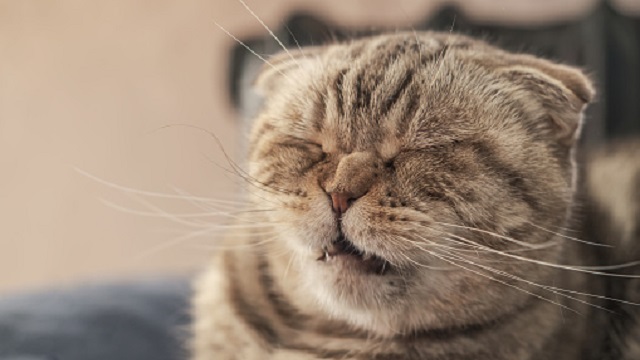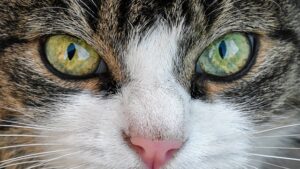Can Cats Have Allergies? Signs And Causes
If your cat develops some unusual symptoms, you might wonder if allergies are to blame. Can cats have allergies, and what are they allergic to?
- Cats can have allergies triggered by food, environmental factors, and insect bites, causing various symptoms.
- Common symptoms include skin rashes, itching, respiratory issues, and digestive problems.
- Identifying allergens can be challenging, requiring veterinary assistance for proper diagnosis and treatment.
- Proactive care and reducing exposure to allergens can help manage your cat's allergy symptoms.
Can Cats Have Allergies?
Cats can have allergies, and these can be triggered by a range of different substances. The signs of allergies in cats can be very subtle, and it can be difficult to pinpoint exactly what’s causing the problem. Treatment can also be a daunting prospect, as it may not always be possible to remove the underlying cause.
What Causes Allergies In Cats?
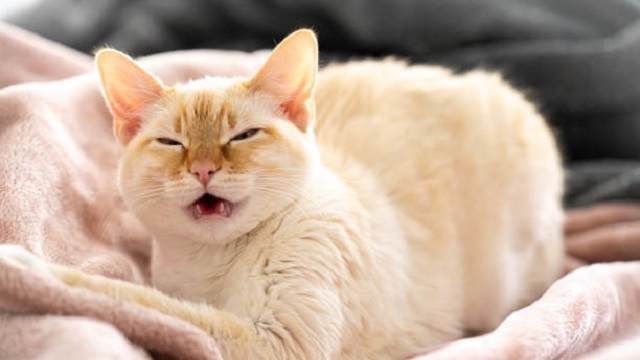
A substance that causes an allergic reaction is called an allergen. Three main groups of allergens can cause allergies in cats, all of which can cause similar symptoms:
• Dietary Allergies
Food allergies in cats are most commonly triggered by sources of animal protein, such as chicken or beef. Some cats may also develop an intolerance to other food sources such as milk, wheat, eggs, or soy. Cats with food allergies may develop symptoms within many body systems, including the digestive tract and the skin.
• Environmental & Contact Allergies
Some cats develop an allergic reaction to many things which are present in the environment. These include airborne particles, such as pollen, dust, perfumes, or molds, or things your cat comes into direct contact with, including fabric fibers, plants, and grasses, or chemicals such as shampoo or cleaning products.
Some environmental allergens may be seasonal, such as pollen; others are present all year round. Cats with these types of allergies most commonly develop respiratory symptoms, such as wheezing, itching, sneezing, and coughing.
“Every time Umi is hospitalized, it’s for like four days and it costs over $5,000… Maven has helped me not only save money but also save his life”
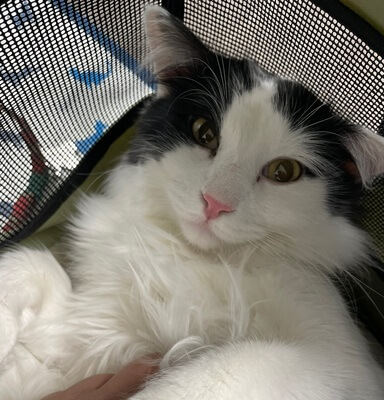
★★★★★
Jessica Ortiz
Umi
• Insect Allergies
It is very common for cats to develop an allergy to flea saliva, leading to a condition called flea allergic dermatitis (FAD). When this condition occurs the cat will develop irritated skin after just one flea bite, leading to hair loss, skin inflammation, and incessant itching.
What Are The Symptoms Of Allergies In Cats?
The signs of allergies in cats will vary according to the type of allergy. Most allergies cause some type of skin rash or reaction, but cats with food allergies tend to develop digestive problems too.
Some of the most common symptoms seen in allergies in cats include:
- Skin rash, with generalized or localized itching
- Red and itchy eyes
- Sneezing and nasal discharge
- Coughing and wheezing
- Soft feces or diarrhea
How To Help A Cat With Allergies
The ideal way to treat any type of allergy is to remove the cause. For some allergens this can be simple – for example, using regular flea control products on a cat with flea allergic dermatitis.
However, identifying the source of the allergen is not always that simple! Food and environmental allergies can be particularly difficult to pin down, as the allergic reaction can be triggered by a myriad of different substances.
For your veterinarian, the hard work lies in finding the source of the allergic response. With food allergies, it may be necessary to try different foods which eliminate particular food sources to locate the offending ingredient. Regarding environmental allergies, the possibilities are far wider… And the source of the allergen may never be identified even after extensive testing.
With many allergies, symptomatic treatment may be necessary if the source of the allergen cannot be identified or removed. Your veterinarian may prescribe medication to reduce the allergic response, and topical creams or lotions to soothe sore and itching skin. With food allergies, it may be necessary to give your cat probiotics to support digestive function.
When it comes to environmental or contact allergies, the best way to help your cat is to reduce any exposure to chemicals, dust, and mold spores. Vacuum your house and your pet’s bedding regularly and avoid using highly-scented or potent cleaning products. If the air quality outside is poor or the pollen count is high, keep your cat inside with the windows closed.
Conclusion
So, as we have learned, cats can in fact have allergies. Allergic reactions in cats can be triggered by a range of different everyday substances. Allergies can be uncomfortable and debilitating, and some of the symptoms can be painful for your cat.

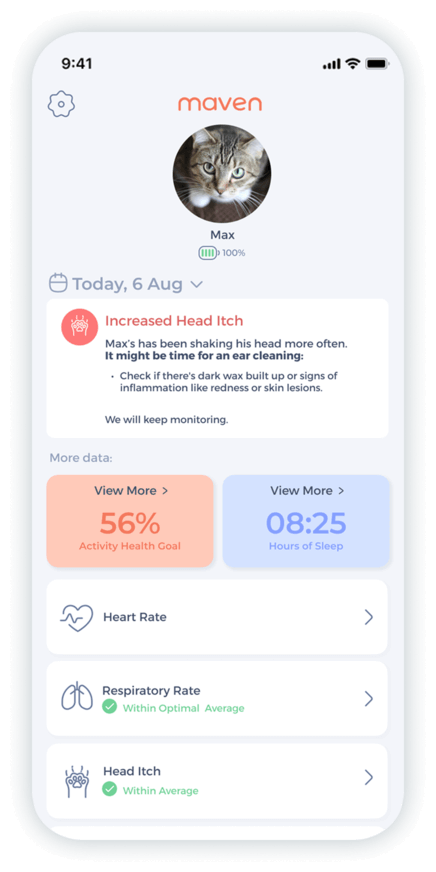
Monitor heart rate, respiratory rate, activity & rest, itch behavior.
If you suspect your cat may be having an allergic reaction, you should seek veterinary help. Maven’s monitoring can help you clear your doubts!
Maven Pet focuses on improving the quality of life of our pets with technology, using artificial intelligence (AI) to enable proactive pet care. By accurately collecting and monitoring pet data 24/7 and flagging any irregularities, Maven Pet empowers pet parents and veterinarians to stay ahead of potential health issues, ensuring the well-being and longevity of our beloved companions.

